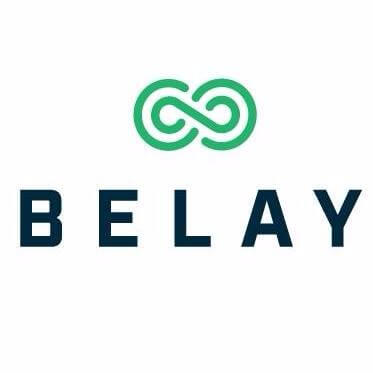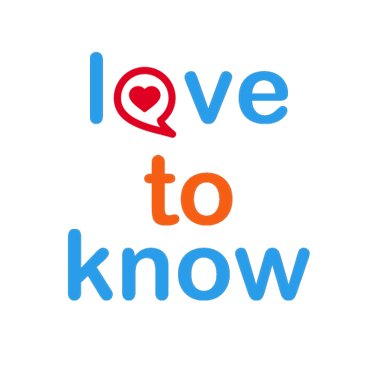What were your biggest fears in managing remote workers?
The biggest fear is “culture cracks” as our CEO calls it. Since we do have such a significant amount of remote team members, it is crucial for us to keep a strong focus on culture and to ensure that we are constantly listening to our team and what is important to them. On our team, we have had a few times we felt some culture cracks. However, the team worked very hard to fix these cracks and engage team members in team events and training, and provide transparent updates and feedback.
I don’t know that we had any preconceived fears in working remotely, but I think generally speaking most organizations are fearful of remote workers because they fear productivity will decline. However, the fear is unwarranted. Statistics show that remote workers outperform their in-office peers due to lack of distractions (office parties, anyone?) and there’s an overall increased employee engagement and happiness due to reduced commutes and better work-life integration.
Trust is a big fear and challenge. At the end of the day, as a business owner of a remote team, you aren’t there to babysit what your team is doing and saying … and they are a reflection of your brand. Communication, communication, communication is the only way forward … but even then, this really is a challenge that in some respects is insurmountable. The flexibility benefit, however, outweighs the cost.
As is the trend with other remote companies, we worry about workplace culture. It’s a bit harder to foster when you only see one another on Skype, but that’s where our love and passion for our job comes in. We rally around our mutual desire to help our company, and that unites us more than anything else.
My biggest fear is that one day I’ll wake up and simply be too frustrated that I don’t get to physically hang out with other Formstackers on a daily basis. Video chat does get the job done, but it can’t always overcome the need to physically be around people, and being on video too much during any given day can actually be rather taxing. I once also feared that I’d have trouble trusting people to get their jobs done. That went away quickly when someone taught me to “give people your trust and let them earn your mistrust.” Said differently, until they break your trust, expect that they are doing a great job. That was a life-changer for me.
Our biggest fear was that if we weren’t sitting right next to employees, it would be hard to ensure they are executing at the level we would expect. However, we’ve found that if you hire the right people and empower them to be successful, they will work at or beyond what you expect of them because they view remote work as a privilege. There have been some hiccups along the way, but definitely nothing more than the issues I’ve seen when working in an office.
Never really had a fear, if you fail in managing remote workers, it is not the system causing the failure, it is you.
My biggest fear was probably that everyone was just going to goof off and not get any work done with little oversight. This has been far from true. We’re a very performance-based company, not an hours-at-the-keyboard-based company, and I think this has helped. At the end of the day, I could care less how many hours you’re working if you’re producing high-quality work equivalent to full-time work. Looking back, the funniest part is I used to goof off 35 hours/week when I worked at the desk next to my boss at my corporate job. That probably wouldn’t of happened if he would have judged me based on my performance.
I think my biggest fears are when we lose touch with someone. Every once in a while, someone will just “disappear” – they don’t answer emails, phone calls or other contact. In those instances, I’m left wondering – “Are they dead or just flaky?”
Accountability. The fear that people would simply flake, walk off into the distance, play video games instead of work. Sure they came true. And then we learned to recruit better. We learned to manage people in the void. While it can be an issue today, I personally suspect it is less so than in many collocated organizations.
Not many fears that I can think of. Really just accountability and showing up, but I don’t feel that’s any more of an issue than non-remote workers; maybe even less of an issue.
Not being able to express when an issue is truly urgent. This is a problem, but it’s gotten easier the more we all work together. When we’re short on time and I say: “This is urgent” via chat, it’s hard to instantly convey what that means in the context of the other pressing matters that have already been defined as urgent.
My biggest fear is that I do not always know what employees feel. When I make an update, what do they think? Sure, they give a thumbs up or another funny emoji, but what do they truly feel? Also, when we make our biannual survey of how happy employees are and see positive results, are they true? What are the thoughts behind? Some might not want to write in detail about their feelings.
We heard some small commentary from traditionalists when we started the company as a virtual company, wondering how we could manage remote workers effectively when they could theoretically be off watching TV or snoozing all day. How could we manage without walking around an office space and catching people and conversations on the fly?
We have hired outstanding employees with great communication skills and strong work ethics who value the benefits that come with remote work. We use collaboration tools like Sococo that enable us to have a certain level of visibility into who is online and available. And we set clear performance goals against which we hold people accountable.
People being dishonest about the amount of time they are spending working on your project and doing things on the side. There are big brother style tools to prevent this, such as Worksnaps.com to track your employees presence, but people generally don’t like them—and neither do we.
My biggest concern is worrying about the happiness of our team members. It’s easy to tell how someone is feeling in person. Fortunately, we haven’t had any unexpected surprises. No one’s left Sticker Mule since our inception. I’ve been thinking about developing a survey to gauge internal satisfaction to overcome the challenge of monitoring workplace happiness with a remote team.
My biggest fears were around not being able to manage work output, and not having clarity into someone’s projects. For the first 6 months this was definitely true, but I’m proud to say that we’ve implemented systems and strategies to overcome this. It really just comes down to planning through Trello and constant communication with each other including our daily standups.
I never had any fears. We’ve been told countless times that at some point we need to get an office and have a headquarters so we can be a real company. Our team is very proud of the business we’ve built and will continue to build for years to come. And we did it without wasting countless hours commuting!
I’m a first-time people manager and first-time CEO. My fears were (and still are) around leading a team of people. Being remote was never part of the concern. I didn’t consider myself a leader before Tortuga, so I’m trying to develop those skills, lead by example, and always put helping the team first.
We’ve always been worried that they wouldn’t commit to teaching online in the long run, because most of our teachers are busy with a full-time job or young kids at home.
Those fears have absolutely not come true.
Our teacher retention rate is amazing. We’ve found it’s a challenge to get teachers started with us, but once they’re in, they stay and love the company.
I would say more fear a lack of productivity, lack of communication or engagement, even how to manage potential issues like workers comp claims. In almost 20 years of business, I can’t say we’ve never had an employee who didn’t work well remotely, but the instances are very few. Our team members value the benefits they receive working remotely, and are happier and more effective as a result.




























